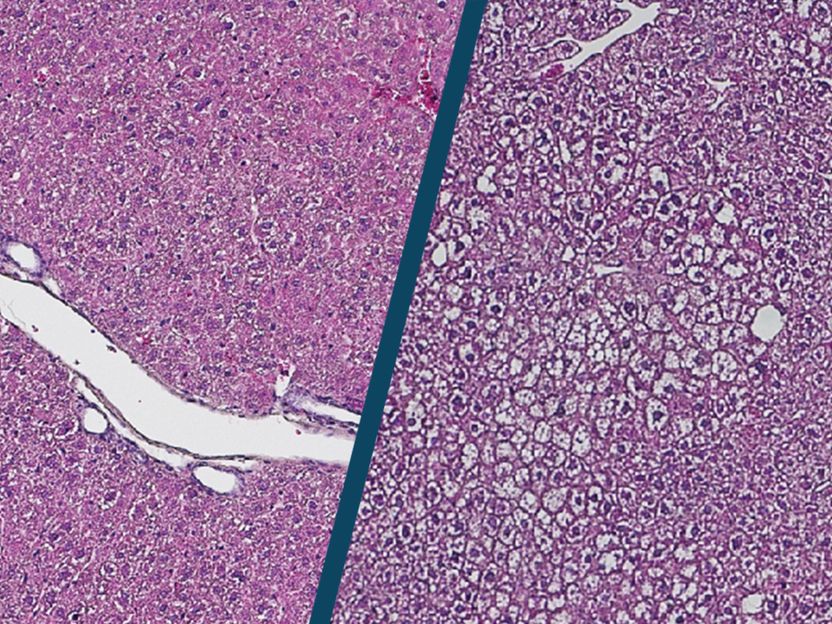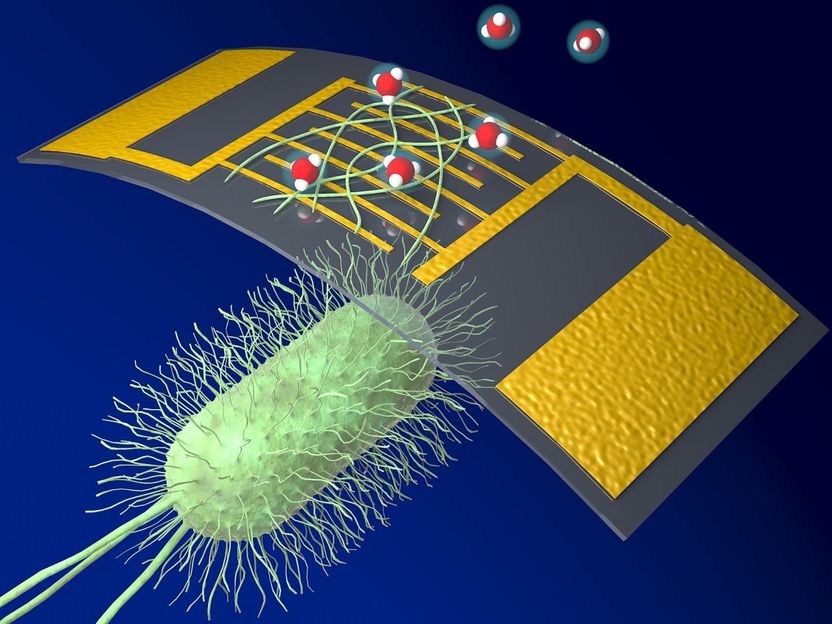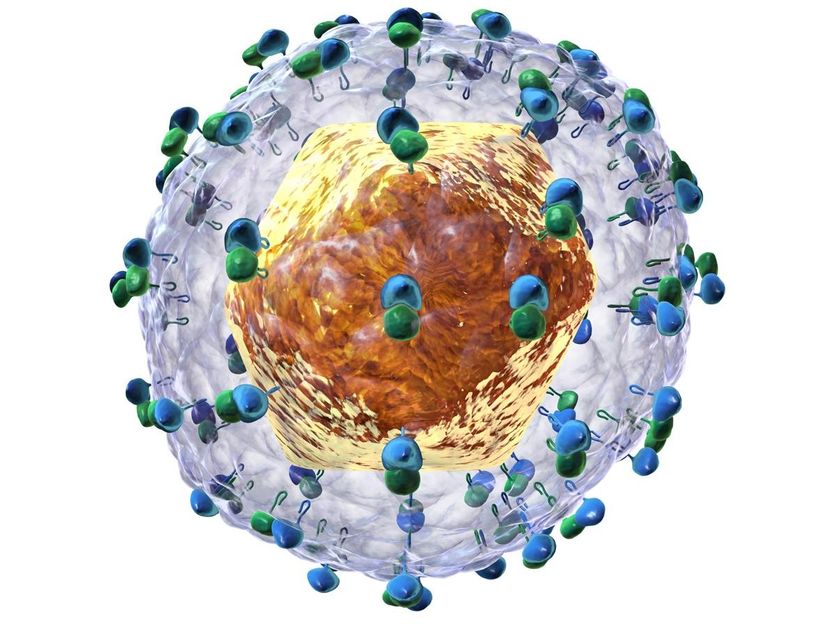A building block for liver fitness in old age
Researchers discover cellular protection against epigenetic changes
The liver can regenerate even in old age and remains surprisingly fit, even though the chromatin in its cells undergoes major remodeling due to epigenetic changes, as researchers from the Max Planck Institute for Biology of ageing in Cologne have now discovered. One possible reason why the transformation has minor consequences could be a mechanism that the researchers now describe in the journal Molecular Systems Biology.

The structure of the liver changes with age. Shown here is a histology image of young (left) and old (right) liver cells.
Max Planck Institute for Biology of Ageing
Changes in epigenetics are considered to be a cause of ageing processes. Epigenetics describes changes in genetic information that do not alter the sequence of the genes themselves, but influence their activity. Among other things, this can be regulated by the accessibility of proteins to DNA as part of chromatin. In this study, the researchers observed in liver cells that the DNA of liver cells becomes much less packaged with age. This makes the DNA more accessible to produce the messenger molecule RNA. "If the DNA is readily accessible, we should also see greater amounts of RNA made. But that was not the case at all," says Peter Tessarz, head of the study.
Shorter break at the DNA
The researchers already have a possible explanation for this. They found that RNA polymerase, a protein that binds to DNA and then produces RNA, falls off from the DNA more quickly in aged liver cells than in young cells. This reduced stability means that, despite increased accessibility to DNA, there is no net increase in RNA production, maintaining the balance within the cell.
"We think we have discovered a new pathway in cells that compensates for age-dependent epigenetic changes. This could be one reason for the liver's ability to keep functioning for so long. Whether a similar mechanism counteracts epigenetic changes in other tissues remains to be explored in the future. There, however, we also observe completely different epigenetic changes during ageing," says Tessarz.
Original publication
Most read news
Other news from the department science

Get the life science industry in your inbox
By submitting this form you agree that LUMITOS AG will send you the newsletter(s) selected above by email. Your data will not be passed on to third parties. Your data will be stored and processed in accordance with our data protection regulations. LUMITOS may contact you by email for the purpose of advertising or market and opinion surveys. You can revoke your consent at any time without giving reasons to LUMITOS AG, Ernst-Augustin-Str. 2, 12489 Berlin, Germany or by e-mail at revoke@lumitos.com with effect for the future. In addition, each email contains a link to unsubscribe from the corresponding newsletter.
Most read news
More news from our other portals
Last viewed contents

Half of German start-ups use ChatGPT & Co. - 53 percent already use AI applications for text generation
Vin_Mariani

A bright spot for microbiological diagnostics - Researchers develop molecular probes to detect pathogens in clinical samples
List_of_subjects_in_Gray's_Anatomy:_I._Embryology
John_Kuriyan

A new, highly sensitive chemical sensor uses protein nanowires - UMass Amherst team introduces high-performing 'green' electronic sensor
Category:Shoulder_surgery
Haemochromatosis
Agriculture_and_Agri-Food_Canada

Aignostics secures $34 million Series B to improve precision medicine with AI - Investments will support new product offerings, US expansion, and development of pathology foundation models

Novel hepatitis C virus inhibitory molecules by in vitro evolution - This work could contribute to the development of new biosensors and diagnostic systems for hepatitis C






















































